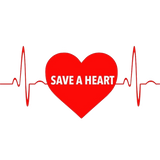Understanding Heart Attacks: A Simple Guide

A heart attack, also known as a myocardial infarction, occurs when the blood flow to a part of the heart is blocked, causing the heart muscle to die. This can be caused by a blood clot that forms in one of the coronary arteries, which are the blood vessels that supply the heart with oxygen and nutrients.
During a heart attack, the affected part of the heart may not receive enough oxygen and nutrients, which can cause damage to the heart muscle. This can lead to serious complications, such as heart failure or arrhythmias (irregular heartbeats).
Symptoms of a heart attack may include chest pain, shortness of breath, nausea, and sweating. If you suspect that you or someone you know is experiencing a heart attack, it is important to seek medical attention immediately, as prompt treatment can help to prevent further damage to the heart.
To prevent heart attacks, it is important to maintain a healthy lifestyle, including eating a healthy diet, exercising regularly, and avoiding smoking and excessive alcohol consumption. It is also important to manage any underlying health conditions, such as high blood pressure or diabetes, as these can increase the risk of a heart attack.
What to do if you experience heart attack symptoms:
Doctors recommend that if an individual experiences signs of a heart attack, to immediately call 911, then chew and swallow a 325 mg tablet of Aspirin. The Aspirin slows clotting and decreases the size of the forming blood clot, thereby preventing the heart attack from becoming more severe.
The recommended dose of aspirin to take when experiencing a heart attack. It is important to chew the aspirin rather than swallow it whole, as this will help it to work more quickly.
It is important to note that aspirin is not recommended for everyone and may not be appropriate in all situations. If you are unsure whether aspirin is right for you, it is important to talk to your doctor before taking it.
In addition to taking aspirin, it is also important to seek medical attention immediately if you or someone you are with is experiencing symptoms of a heart attack. Call 911 or your local emergency number right away, and follow the instructions provided by the operator. Getting medical treatment as soon as possible can save lives.


